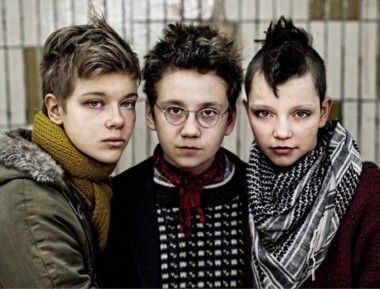If it’s true that there’s no business like show business, it’s also a fact that there’s no one thing that sums up the industry. Consider just a single movie shoot—look at the credit roll of any recent film, and it’s likely to be longer than most phone books, unspooling a seemingly endless string of agents and caterers; animal handlers and voiceover actors; grips, best boys and gaffers. And that’s just a sampling from Hollywood. Add in Broadway and a million dingy music clubs and it starts to become clear that show business encompasses a great many worlds. This week, a trio of films at Amherst Cinema looks at a few of those varied places.
Perhaps most immediately familiar to filmgoers will be the world of Supermensch: The Legend of Shep Gordon, a new film by first-time director Mike Myers (of Austin Powers fame). While the name probably doesn’t ring any bells, Gordon has been a central behind-the-scenes figure in the world of celebrity for decades. He’s best known to insiders as manager to music stars like Alice Cooper and Blondie, and his career began with a chance meeting in the late ’60s with Jimi Hendrix and Janis Joplin, during which Hendrix asked rather bluntly if Gordon were Jewish. When he replied that he was, Hendrix told him he “should be a manager.”
And so he became just that, or so the story goes, beginning with Cooper, whose gothic image he helped craft. A bit later, Gordon helped invent the idea of the celebrity chef, creating an entire industry which he helped populate with people like Emeril Lagasse.
In Hollywood, Gordon is something of an anomaly, at least according to Myers, who says “Shep Gordon is the nicest person I’ve ever met, hands down.” Just about everyone in the film—and his list of clients and friends would grow to include Michael Douglas, Willie Nelson, Sly Stallone and the Dalai Lama—sings his praises as a gentle and generous agent who strives to do what Gordon calls “compassionate business.”
After hearing so much praise heaped upon one man, it’s hard not to suspect that Myers is laying it on a bit thick, and that Gordon is likely a more complex man than the figure we’re presented with here. (His career as a manager was partly a cover for a career in drug dealing, at least in the beginning, and Gordon is pictured on tour with Cooper wearing a shirt that reads, “No Head No Backstage Pass.”) Still, it’s a remarkable life, and a remarkable window into the worlds that have entertained so many for so long.
We Are The Best! is Lukas Moodysson’s adaptation of his wife’s graphic novel about Klara and Bobo, two Swedish teenagers looking to start an all-girl punk band. After pulling in their schoolmate and classical guitarist Hedvig (neither of the other girls plays an instrument), the three set out to make their mark on the world. Moodysson, who has been largely absent from the film world lately, has always had a talent for capturing the inner moods of outsiders; film lovers may recall his 1998 film Show Me Love, about two girls trying to escape the drudgery of life in their small Swedish town. Here again he paints a portrait of youth finding a way to adulthood without giving up what makes them feel so different.
In Gillian Robespierre’s film Obvious Child, aspiring comedian Donna Stern (Jenny Slate) finds herself dumped, fired, and pregnant on Valentine’s Day. After using her own life as fodder for her act for so long, Stern finds herself on the brink of a new kind of adulthood, one in which the most grown-up thing she can do is accept the help of those looking to give it. Here’s hoping that Slate, whose recent short-lived stint on Saturday Night Live is mostly remembered for the F-bomb she dropped during her first show, becomes a more familiar face on our screens.•
Jack Brown can be reached at cinemadope@gmail.com.



